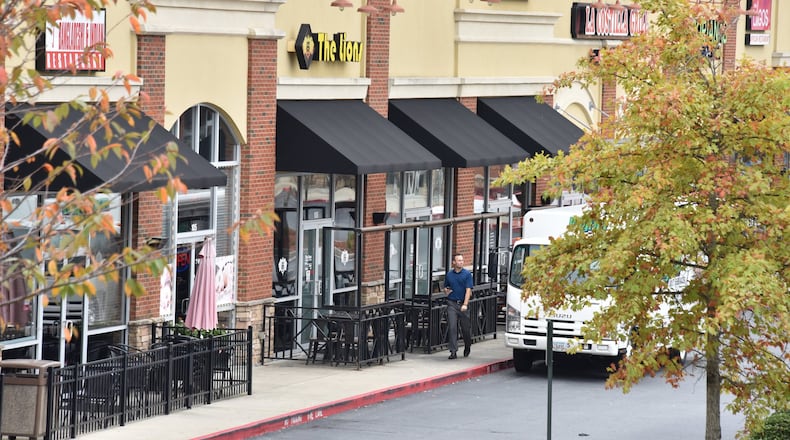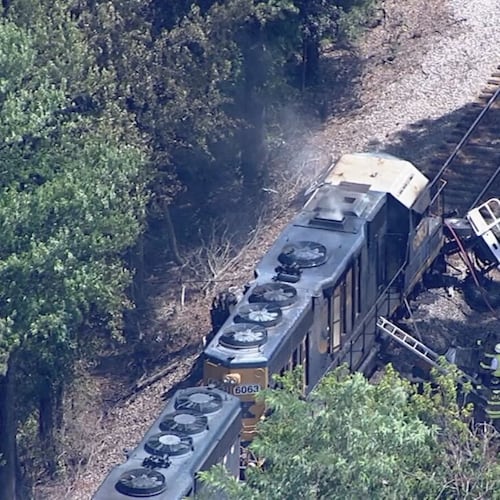Kenneth Holmes put a lot of money behind opening Empire Sports Bar and Grill in 2017. Nestled in the corner of a well-trafficked Buford Highway shopping center, Holmes’ lounge was surrounded by bars and restaurants offering a variety of international cuisines, ranging from Nigerian to Chinese to Mexican.
But Holmes temporarily closed his business after the city of Chamblee declined to give him an alcohol license for 2019. The city argued Empire did not serve enough food to qualify as a “restaurant.”
His business is one of five recently sued by the city of Chamblee for allegedly continuing to serve drinks in 2019 after losing their pouring licenses. “At the end of the day, we’ve got to have some money to pay the bills,” Holmes said. “We’re all frustrated because we don’t know what to do.”
The five bars or clubs sued are all located near the Buford Highway corridor, some of which are well-known local nightlife spots: Mansion Elan, SL Lounge, The Lions Restaurant and Lounge, Nueva Union and Empire.
The city’s suit escalates the behind-the-scenes legal battles between Chamblee and its nightlife establishments, which has simmered for years.
With some of the bars forced to temporarily or permanently shut down, the suit has prompted fresh accusations that the city is unfairly targeting minority businesses. In addition to Empire temporarily closing, Nueva Union has shut down, a lawyer for the business said. And Mansion Elan, known as a staple of Atlanta nightlife, held a “grand finale” party several weeks after the lawsuit was filed.
A spokeswoman for Chamblee said the city does not comment on pending litigation.
A tougher burden
The crackdown follows a recent change in Chamblee’s alcohol ordinance that added conditions in order for a business to serve alcohol.
The suit stems from the local law in Chamblee, which mandates that for a business to serve liquor, they must qualify as a “restaurant” and make at least half of their total revenue from food prepared on-site. That doesn’t leave space for straightforward bars or nightclubs that serve mostly drinks, and make substantial revenue from hookah, cover charges or prepared food items.
The city’s website states that “By-the-drink alcohol sales are only allowed in full-service restaurants.”
Last October, the city tweaked its alcohol code and tightened the definition of a restaurant. The five businesses applied for a 2019 alcohol license last year and were told the city intended to deny their requests. They appealed through the city, but a hearing officer upheld the decision early this summer.
“None of the defendants has a current Chamblee alcoholic beverage license, but each has nevertheless continued selling alcohol in 2019 without the required license,” the lawsuit stated.
The city asked for a restraining order and injunction that would bar the five businesses from selling alcohol, according to a copy of the complaint, obtained through an Open Records Act request.
According to the city, failing to meet the 50% food sales threshold can pose a public safety threat. That rule is in place to “ensure that patrons are consuming sufficient food to offset alcohol consumption,” according to the lawsuit. “When alcohol is consumed by itself, inebriation and drunkenness occurs faster and presents the risks of antisocial behavior, assaults, driving under the influence, etc.”
‘Everybody’s scared’
For several years, the Nueva Union bar and nightclub on Shallowford Road offered dancing and drinks, catering largely to the vibrant Hispanic community in Chamblee. But since their alcohol license was denied for this year, the family-owned business has had to give up its lease and shut down for good, according to attorney Cary Wiggins.
“They’re done, and it’s because (of) the current ordinance,” Wiggins said.
Over 14 years, Mansion Elan was known for attracting celebrities and hosting big events including the after-party for this year’s BET Hip Hop Awards. The club wrote on its website that “all great things sometimes come to an end,” ahead of its Oct. 12 “grand finale” night. A lawyer representing Mansion Elan could not be reached for comment.
“Everybody’s scared, because they put so much money into their establishments,” said Holmes, the owner of Empire.
Chamblee Mayor Eric Clarkson could not comment on the pending lawsuit, but said the city’s law about restaurants having to serve food to obtain an alcohol license isn’t brand new.
“As long as I’ve been in office, you’ve always had to serve more in food,” he said.
Several cities around Chamblee provide additional options for establishments that want to serve drinks. In Brookhaven, for example, the city defaults to the state law: Bars are able to serve mostly — or only — alcohol, if they don’t serve alcohol on Sundays. If a restaurant wants to offer drinks on Sundays, then they must serve at least 50% food, city officials said.
Dunwoody requires that for an “eating establishment” to serve liquor, it must make 60% of its total food and drink sales from food. But Dunwoody also provides an option for beer or wine bars that don’t have a full kitchen, if they don’t serve liquor.
Chamblee’s new lawsuit is reviving allegations that the city is targeting bars and clubs that are minority-owned and cater to black and Hispanic populations. All of the businesses that Chamblee sued are located near Buford Highway, stretching from Shallowford Road to Clairmont Road, a part of metro Atlanta known for its diverse population and international businesses.
The area was annexed into the city in 2014, along with some nearby neighborhoods. Now, the city is about 39% Hispanic or Latino, 33% white and 15% black, according to the latest Census estimates.
Last year, Mansion Elan and Follies, the city’s only strip club, filed lawsuits after Chamblee passed an ordinance mandating that liquor cannot be sold after 2 a.m. Monday through Saturday. Previously, bars had been able to pour until 3 a.m.
Mansion Elan and other clubs argued the law would unfairly harm their business and disproportionately impact minority residents, but a judge later upheld the new bar hours.
Chamblee’s new lawsuit is pending in DeKalb County Superior Court and was met with a flurry of counter-motions and other filings from the bars. In a counterclaim filed Wednesday, an attorney for Lions argued that Chamblee is trying to unfairly drive out businesses with a minority clientele.
The city is using its alcohol code “as an instrument to further its racial discrimination against Lions and other minority owned businesses in the city,” Lions’ attorney Taylor Harper wrote in the counterclaim. Lions is still serving alcohol as the court proceedings continue.
The city did not respond to the allegations that its pouring license requirements are discriminatory, citing the ongoing litigation.
Several of the businesses, including Mansion Elan, Empire and Lions, previously filed court appeals after the city’s hearing officer upheld the decision to deny the alcohol licenses.
About the Author
Keep Reading
The Latest
Featured





